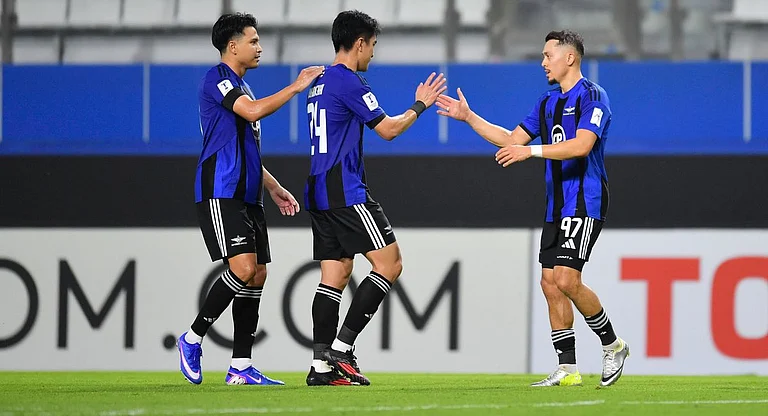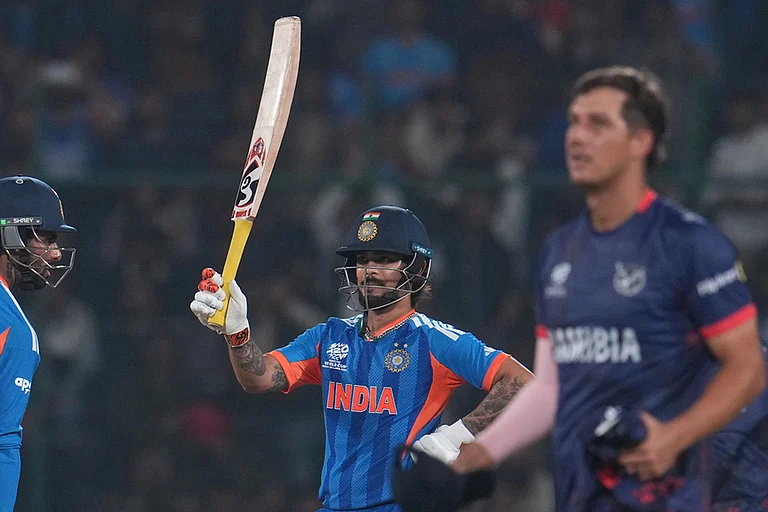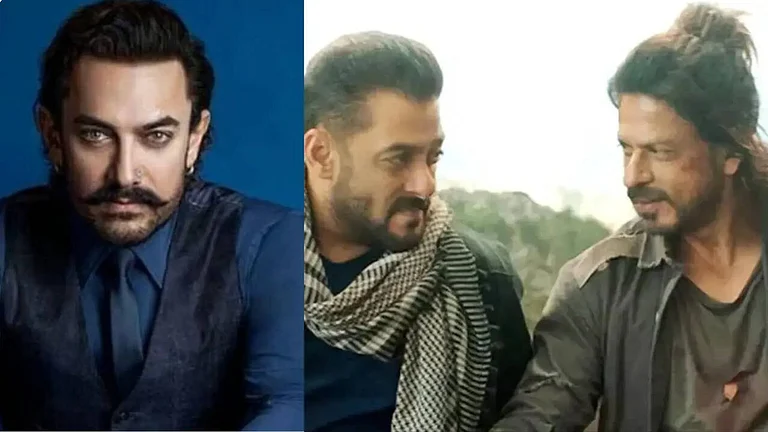The 10-day Hindu festival of Navratri has drawn to a close on a sombre and communal note amid a barrage of communally charged incidents across India. And the two states where the tensions played out the most were in Gujarat and MP where right wing organisations had reportedly demanded a ban on Muslims from entering Garba events.
In Gujarat, a right-wing group had said it will “guard” garba events in Gujarat during the Navratri festival, which began on September 26, to prevent “non-believers” from entering the venues. On Monday, activists from the organisation beat up organisers and security guards of a garba pandal in Gujarat's Surat city and vandalised the place claiming non-Hindu people were employed at the venue.
The incident occurred at the Thakor Ji Ni Wadi garba pandal in Surat. The group, who identified themselves as Bajrang Dal activists, also vandalised parts of the building.
Tensions also soared in the Kheda district of the state where a mob of nearly 150 men and women attacked a Garba event and left seven persons injured including a police officer. As per reports, the incident took place after members of the Muslim community objected to holding of the programme near a mosque. A day after the incident, videos emerged of some of the accused being publicly flogged by police officers while a crowd of locals cheered the cops on.
Gujarat is not the only state where Garba - the traditional dance associated with Navratri, became a hotbed for communal tensions.
In Madhya Pradesh, for instance, members of the Bajrang Dal were actively getting Muslim men "arrested" from Garba venues.
Stones were allegedly hurled at a garba pandal in Madhya Pradesh's Mandsaur district following a dispute between both Hindu and Muslim communities. The pelting, which occurred on October 2, reportedly left four injured.
In response to the incident, police in MP booked 19 persons and razed the homes of three of the accused, calling it "illegal" construction. The demolition of the homes of protesters and miscreants has become a trend in several states such as Uttar Pradesh.
According to police sources, a man named Salman was performing stunts on a motorcycle and a quarrel erupted between him and another man. Later, Salman and his associates reached the garba venue to look for the person with whom he had fought and the matter escalated into stone pelting.
In Ujjain, three Muslim youth were beaten up by members of Bajrang Dal and then handed over to the police. The attackers claimed the youth were making videos of women. Several incidents of Muslim men being beaten in Indore have also been reported since the start of Navratri.
Not just attacks, Muslim men have also reportedly been held without cause in Indore. According to a report by NDTV, five Muslim men who were arrested from a garba pandal in Indore over claimed they were framed and that they were never intending to enter the Garba event. They had merely stopped near the pandal since their bike had run out of gas. The Hindustan Times reported that as many as 14 Muslim men have been arrested in the Navratri week in MP.
The Madhya Pradesh government had stoked controversy earlier when it asked garba organisers to check the identity cards of people before allowing them entry inside pandals during Navratri which will end on October 4. Last month, state culture minister Usha Thakur had suggested that entry inside garba venues during the Navratri festival should be allowed only after checking ID cards to prevent incidents of "Love Jihad".
However, according to a report in NDTV, no official order with respect to checking ID cards of attendees at Garba pandals has been passed.
On Sunday, video of a clash between two groups amid a garba dispute in village Kankar in the state's Agar Malwa went viral. The dispute between two groups allegedly arose over calling women garba dancers from outside.
State Home Minister Narottam Mishra on Monday said people of any faith can worship Goddess Durga and there was no need for anyone to hide their identity while entering pandals where 'garba' performances are also organised during Navratri.
(With inputs from PTI)


























